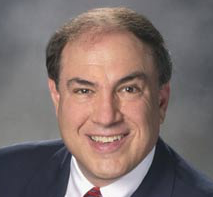Gelman: Intentional Wrong?
Tuesday, May 27, 2025 | 0
Employers' liability insurance policies generally exclude coverage for intentional wrongs committed against employees, even if those employees also pursue workers' compensation claims.

Jon L. Gelman
Michael Bunting was severely injured on the job at Emil A. Schroth Inc. when a baler broke and fell on his foot. He initially received $138,000 through his employer's workers' compensation insurance from New Jersey Manufacturers Insurance Co.
However, Bunting sought further compensation, alleging that his injury was due to Schroth's "gross negligence and intentional wrongdoing," claiming Schroth knew the baler was damaged and unsafe. Bunting and Schroth reached a consent judgment for $1.25 million. As part of the agreement, Schroth assigned its rights to Bunting to pursue coverage from its general liability insurers — NJM, Great Northern Insurance Co. and Chubb Insurance Co. of New Jersey. The insurers had denied defense and indemnity coverage for Bunting's accident.
The insurers filed motions to dismiss, arguing that their policies' Exclusion C5 and EII endorsement provisions precluded coverage. Exclusion C5 explicitly excludes coverage for "bodily injury intentionally caused or aggravated by [Schroth]". The EII endorsement further clarifies this, excluding "any and all intentional wrongs within the exception allowed by NJSA 34:15-8 including but not limited to bodily injury caused or aggravated by an intentional wrong committed by [Schroth] or [Schroth's] employees, or bodily injury resulting from an act or omission by [Schroth] or [Schroth's] employees which is substantially certain to result in injury."
The motion judge granted the insurers' dismissal, reasoning that Exclusion C5 did not violate public policy. The judge stated that allowing coverage for intentional wrongs would increase "moral hazard" and prevent employers from facing consequences for intentionally disregarding employee safety.
This decision was affirmed on appeal, relying on the New Jersey Supreme Court's ruling in Rodriguez v. Shelbourne Spring LLC. The Rodriguez case involved identical policy exclusions and held that Laidlow claims of intentional wrongdoing "are expressly excluded under the plain language of the [employer's liability insurance] policy exclusions." The court also explicitly ruled that these exclusions do not violate public policy.
"We also conclude Bunting's contention that the exclusionary provisions in Schroth's insurance policy violate public policy is without merit, as Rodriguez expressly ruled that the exclusions at issue do not violate public policy," the court said. "The court held that the 'challenged intentional wrong exclusions,' the same exclusions challenged here, 'are not against public policy.' Judge English got it right."
Therefore, the insurers were not obligated to provide coverage for Bunting's claims of intentional wrongdoing.
Claimants' attorney Jon L. Gelman is the author of "New Jersey Workers’ Compensation Law" and co-author of the national treatise "Modern Workers’ Compensation Law." He is based in Wayne, New Jersey. This blog post is republished with permission.







Comments